Who can see your post?
Your post will show up in News Feed, on your profile and in search results.643,518 Global Murphy Family Members
| Days | Hours | Minutes | Seconds |
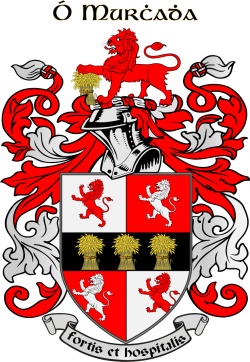
Sunday 13th July
2pm (New York), 7pm (Ire)
| Days | Hours | Minutes | Seconds |

Sunday 13th July
2pm (New York), 7pm (Ire)
Our in-person family gatherings
Our TEDx talk about family gatherings
Murphy Family History
Ó Murchadha or (modern) Ó Murchú - anglicised as Murphy and earlier as (O) Murchoe, Morchoe etc means ?sea warrior? in Irish. As Murphy it is the most numerous surname in Ireland, although there are more Murphys now in America than there are in Ireland.
Mac Murchaidh - also anglicised as Murphy. Woulfe in 'Sloinnte Gaedheal is Gall: Irish Names and Surnames' adds that this name is the Ulster variant of:
Mac Murchadha- a Leinster name and the 'tribe' of the infamous king of Leinster Dermot MacMurrough, who invited Strongbow and his Welsh-Norman mercenaries into Ireland, thus involving England in Irish history. The infamous Dermot's grandfather, Murchadha or Murrough, is the eponymous ancestor of the Wexford MacMurchadha, not of the Ó Murchadha sept who were also in Wexford. According to Woulfe (op. cit.) Dermot's descendants gave rise to the distinct surname Cavanagh or Kavanagh, through his son Domhnal Caobhánach.
There are several septs of Ó Murchadha recorded in counties Tyrone, Sligo and Wexford; the latter were a branch of the Uí Ceinseallaigh. It is probably this family who became very numerous. It is also likely that the Co Cork Murphys are a branch of this Wexford sept.
In William Petty's 1659 Census, the following are recorded:
Co Wexford
Wexford town and liberties: Murphy (14 families); New Rosse: Murphy (10); Barony of Forth: O Morroe (27) Morrogh (19) Murphy (16); Bargie: O Morrow (6) Morrogh (5) Murphy (20); Shelmaleer: McMorrogh (6) Murphy (42); Bantry: Murchoe (18) Murphy (31); Ballaghkeene: Murchoe (24) Murphy (60); Goary: Murphy (25)
Co Cork
Cork city and liberties: Murphy (45) O Murraghow (8); Moyalle; O Morroghow (5); Barony of Kinalmeaky: O Morohow (11) Murphy (25); Killbrittaine: Murphy (19); Carberry West: Murphy (32); Beere and Bantry: Murphy (17); Barrymore: Murphy (44); Kilmore and Orrery: Murphy (18)
Co Kilkenny
Kilkenny city and liberties: Morphey (12); Barony of Gowran: Morphy (118); Iverke: Morphey (6); Ida, Igrin and Ibercon (72); Knocktopher: Morphey (11); Fassagh Deinin: Murphy (16); Kells: Morphey (9); Skillellogher: Morphy (18); Crannagh: Morphy (12)
Co Armagh
Oryer Barony: O Murphy (44); Lower Fewes: Murphy (7)
These are the main concentrations of Murphys in the 1659 Census. In Co Sligo a few McMurey(11) and McMorey(14) occur, otherwise there are no other names resembling. It is worth noting how the anglicisation 'Murphy' appears in the 1659 Census to be in the process of replacing the earlier forms of O Morroghow etc.
In Griffith's 'Primary Valuation' of Irish households between 1847 and 1860 most Murphy households were found in the counties Cork (2639 + 448 city) and Wexford (1688) followed by Kilkenny (888) Kerry (787) Armagh (468) and Tipperary (463). The total was 13539.
The 1890 Birth Registrations in Ireland, published in R.E. Matheson's 'Special Report...' (1894), show most Murphys in counties Cork (390), Wexford (137) and Dublin (132). The total number of births was 1385. It was the most numerous name in Cos Wexford, Carlow and Armagh, and the second most numerous in Co Cork. Murphy was classified as the most numerous name in all Ireland.
Two famous Murphys:
Father John Murphy D.D., acted as one of the leaders of the Wexford Rising in 1798: he was brutally put to death on the 26th June 1798.
William Martin Murphy founded the 'Irish Independent' newspaper in 1905. He was the aggressive leader of the anti- workers' employers association in the Dublin 'Lock-Out' of 1913.
Murphy Family From Wexford
MURPHY is by far the most numerous name not only in Wexford but in the whole of Ireland, with distinct branches in Munster and Ulster.
The Wexford Murphys take their name from Murchadha, or Murrough, grandfather of Dermot MacMurrough, King of Leinster. Their territory was called Ui Feilmeadha, or Hy Felimy, from Feilimigh, son of Eanna Ceinnselaigh, the fourth-century King of Leinster.'
Murphys were the chief family of Ui Feilmeadha Theas which corresponded to the present baronies of Ballaghkeen. This district was called after them the Murroes'. The name in Irish-O'Murchu-denotes descendant of the sea-hound, or warrior.
Their chief seats were at Oulart, Oulartleigh, Toberlamina and Morriscastle which takes its name from Morchoe's Castle.
In 1461 Murtagh O'Morchoe of Tobberlimnich (now Toberlamina), Chief of his sept, was granted a charter entitling him to use English Law. This enabled him and his successors to hold their lands by descent and not by Tanistry, which was the Irish custom.
However, it did not prevent them from keeping their ancient customs and retaining galloglasses (armed soldiers) known as 'O'Morchoe's Police', down to the sixteenth century, for the purpose of exacting payment of levies from their subjects.
In 1536 Donal Mór O'Morchoe entered into another agreement with the Lord Deputy to hold his country from the king in return for being maintained in his lordship. In the reign of Edward VI (1547-53) Donal Mór was overthrown, after long resistance, and his estates confiscated to the crown.
A considerable portion of his lands were granted to the Sinnoits as rewards for their 'fidelity and noble service in supressing common enemies'. In 1611 a grant of 1,500 acres in O'Morchoe territory was made to Sir Edward Fisher, one of the Commissioners appointed for the settlement of the county.
Donal Mór was succeeded by his son Conall O'Morchoe whose wife was a daughter of Donal 'Spáineach' Kavanagh of Clonmullen, Co. Carlow. Conall, who had five sons and seven daughters, died in 1634 and was buried in Castle Ellis.
The overthrow of Donal Mór and the subjugation of his followers broke the power of the O'Morchoe sept from which they never rallied. Many of them dispersed and settled in Carlow, Kilkenny and other counties. Some went to Spain where they distinguished themselves in arms. Later, after the Treaty of Limerick, some of them followed Sarsfield to France where several Murphys were officers in Irish regiments.
Donal Mor's brother, Teige O'Morchoe, was ancesi Qularuleigh branch of the Murphys. A later head of this branch of the Murphys, Broian MacHugh Ballagh, surrendered his possessions to King James and got a regrant at a Crown rent of £2.4.8d. per annum. He made a deed of entail of these lands in 1634 and forfeited them after the rebellion of 1641 Lo Art O'Morchoe in the trust of a Protestani named Richa Kenny who had married Ari's sister.
Arl who appears to have become a Protestani, in turn married his own niece (Richard Kenny's daughter) and got more land, granted to Kenny under the Cromwellian Act of Settlement. This Protestant line of the family held on to their lands al Oularulaigh until they were sold by an order of the Court of Chancery in 1841.
The head of this family has continued to hold the title of The O'Morchoe, the surname having been substituted for Murphy by Deed Poll in 1895. This was done by the Rev. Thomas Arthur MacMurrough Murphy, Rector of Kilternan, Co. Dublin, who was a member of the Royal Society of Antiquaries of Ireland. The present holder of the title lives at Ardgary, Gorey.
The two outstanding Wexford Murphys in history were the Catholic priesis Fathers John and Michael Murphy, insurgent leaders in the '98 Rebellion, who were killed at Tullow and Arklow, respectively. Fr. John was born in Tincurry in the parish of Ferns and was curale of Boolavogue. Fr. Michael was born at Ballinoulari and was stationed a Ballycanew. He fell at Arklow when leading with great gallantry a frontal attack on a gun position defending the western approach to the town.' He was buried at Castle Ellis.
Another priest who did much to commemorate all who died in the rebel side in that insurrection was as Canon Patrick Murphy, who was parish priest of Glynn when he retired and was the oldest priest in Diocese of Ferns when he died at the age of 95 in 1971. A native of Whitehill, in Kilmore parish,he spent thirty-five years in the House of Missions, Enniscorthy, and was Superior for two terms (1918-24, 1930-33). In 1934 he visited the Argentine and gave a series of retreats.
In 1952, he received the 1916 Medal in recognition of his work for the national movement in Enniscorthy during and after the Rising. He was keenly interested in the history of Co. Wexford and was the author of a booklei entitled Our Lady's Island in History and Legend". The Bishop of Ferns from 1850 to 1856Murphy was Most Rev. Dr. Mules, a native of Ballinoulari, and a nephew of Father Michael Murphy, the '98 leader. Dr. Murphy was the first and only president of a Catholic seminary which was opened in Michael Street, Wexford, in 1811, and eight years later became the first president of St. Peter's college. In 1829 he was appointed parish priest of Tintern and six years promoted to the important parish of Wexford town.
A nephew of Bishop Murphy's was an inspector in the R.I.C., and was missed from office for exposing what was known at the time as the Dublin Castle Scandals. Another nephew became Mayor of Montreal Dr Murphy died in 1856 in the house in which he was born an Ballinoular? while on a visit to the parish of Litter.
Another notable Wexford churchman was Rev. William Murphy, who was Dean and Vicar General of Ferns and parish priest of Taghmon for thirty-six years until his death in June, 1896. Born at Gibberpatrick, near Duncormick, in 1808, it was he who composed the address presented to Thomas Moore, the poet, on his triumphal entry into Bannow as the guest of Thomas Boyse in 1835. Described as a scholarly and sainuly clergyman, his first appointment was as curate in Crossabeg to Father Dixon of '98 fame.
Another Dean of Ferns was Rev. Patrick Murphy who was parish priest of Glynn for fifty years (1817-1867). He built Barntown Church in 1848 and ordered the discontinuance of the Patron al Killurin on Su. Laurence's Day (August 10) owing to excessive drinking.
Rev. William Murphy, born in Kilrane, in 1880, was President of St. Peter's College, from 1924 to 1932 and parish priest of Bree until his death in 1938. He was son of William Murphy, merchant and farmer, and nephew of Archdeacon Whitty. Bunclody and first cousin of Archbishop Mitty of San Francisco, whose ancestors were from Churchtown, Carne. He had attended the Catholic University of Munich verore becoming a professor in St. Peter's College, and was so highly esteemed in Ferns diocese that his name was put forward as 'dignus' to the vacant See of Ferns before his untimely death. Dr. James Staunton of Ossory was later appointed Bishop.
Major General W. R. E. Murphy, D.S.O., M.C., a native of Carrigon-Bannow, was Deputy Commissioner of the Garda Síochana (the Irish Police Force) until he retired in 1955. He was first appointed to the force in 1923 as Chief Commissioner of the Dublin Metropolitan Police. He was later in charge of the crimes branch at Kilmainham. His manual on criminal investigation was considered one of the most authoritative works on the subject. He gave distinguished service during World War.
One at the end of the war he was the youngest Lieut-Colonel One and at the end of the war he was the British Army. He was President of the Irish Amateur Boxing Association for many years.
Chief Superintendent Nicholas Murphy, Mullingar who was Divisional Officer for Longford-Westmeath from 1944 until his retirement in 1955, was a native of Blackwater, Co. Wey Previously, he had been in charge of the Carlow-Kildare Division 1 was one of the organisers of the Irish Volunteers in Wexford in 1914 Following the 1916 Rising he was arrested and interned in Frongoch During the War of Independence he was Vice-Brigadier in the I.R.A. He was subsequently Colonel-Commandant in the national army.
Rory Murphy, Bunclody, has been one of the best known business men and public figures in the county in recent years. In 1979 he was appointed chairman of An Foras Talúntais (Agricultural Institute) and was elected to the Wexford County Council. He was first chairman of the Farm Apprenticeship Board, is a former national president of Macra na Feirme, former national chairman of Macra na Tuaithe and was a founder of the Bunclody Co-Operative Society and its general manager for twenty-one years.
In the sporting field, Willie Murphy has been a hurling star with the Wexford town club, Faythe Harriers, and was a member of the county team that won the All-Ireland hurling championship in 1968. He won an All-Star Award in 1976 at full-back and was Wexford hurler of the year in 1972 and 1976. Barry Murphy (Buffers Alley), Ray Murphy (Rathgarogue-Cushinstown) and Johnny Murphy (Ballymurn) have also achieved fame on the hurling field.
Pat Murphy of Taghmon has won many All-Ireland handball titles, including the senior singles in 1972, and the doubles in 1972, 1974 (with John Quigley) and 1975 (with Dick Lyng).
Select Audience
-
Public
Anyone on or off Wales101 -
Friends
Your friends on Wales101 -
Specific
Only show to some friends -
Only me
Only you can see your post
Tag People
-
Kane William
-
John Micky
-
John william
-
John Smith
-
John
Create Life Event

John Murphy

Murphy
?
https://genemonkey.com/portfolio/murphys-of-glenbrien/
Nancy Calendine

sue michele tynes

KATHY Wye

Leah Leverett

Shannon

Murphy

Jonnie Mcdowell

Anonymous
Areas of Origin for Murphy
Invite more Murphy family members!
Write an email address and click 'Invite' to share this page with more members of the Murphy tribe.
Log in or Register to invite others
Family Coat of Arms Generator

Why not see what your family crest could look like based on your own family characteristics?
Create CrestJoin the Irish Learning Rooms
Show off the Murphy Family Crest…
Wear your crest with pride...plenty of products to choose from


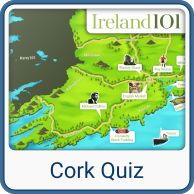

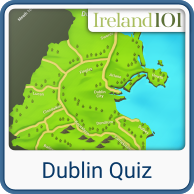
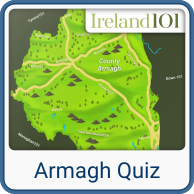
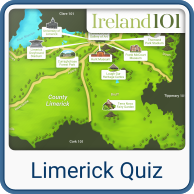
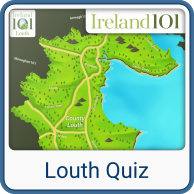

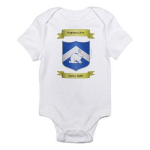
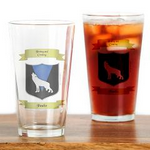
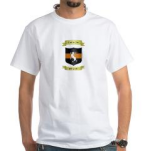
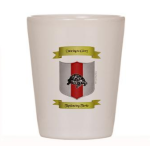
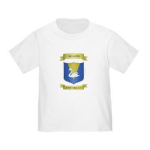
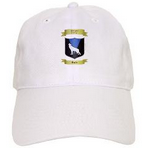
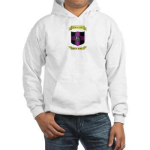
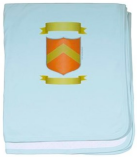
_(2).jpg)